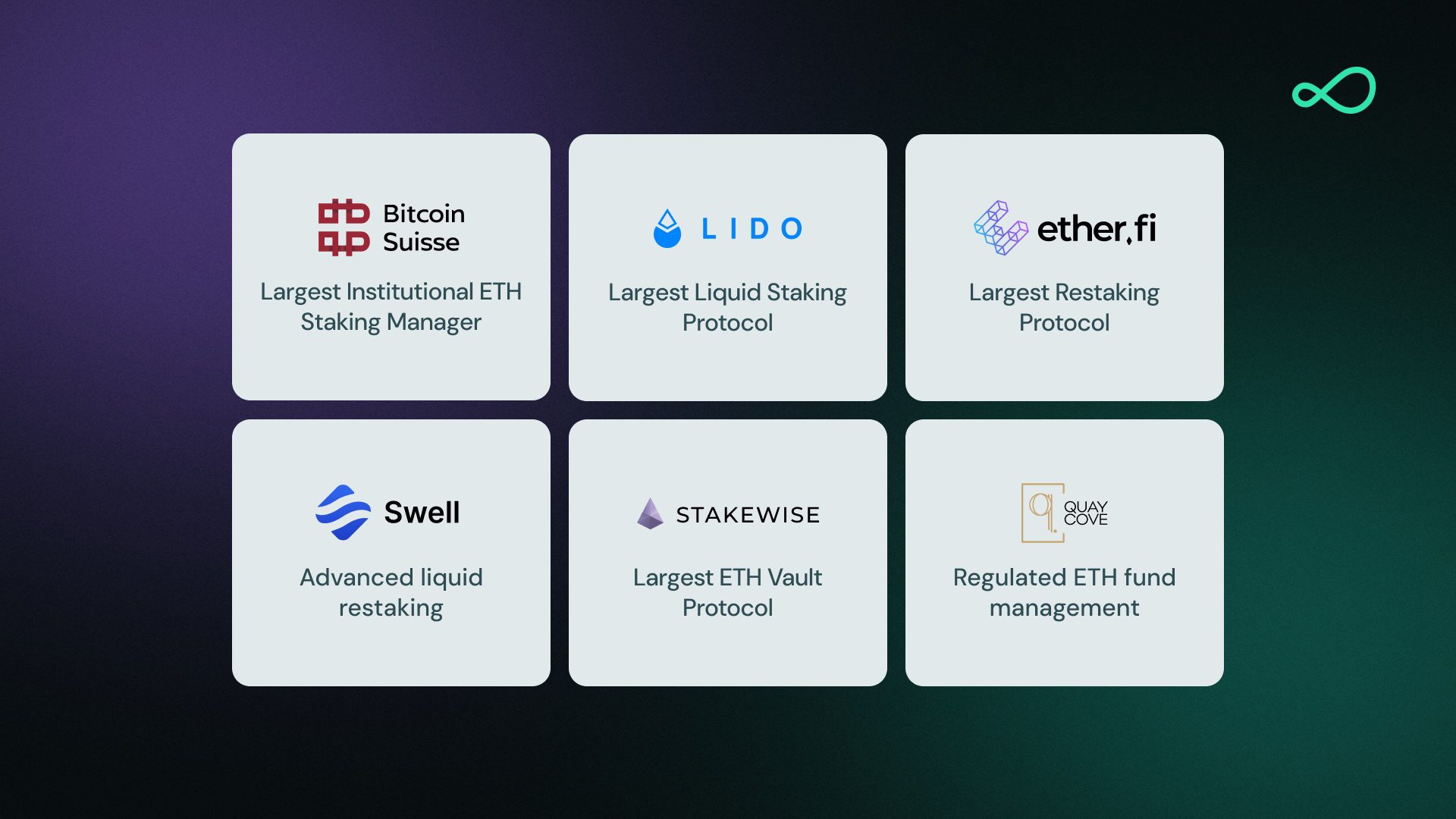Ethereum staking is experiencing a surge in institutional adoption, but challenges related to decentralization, security, and scalability remain. Distributed validator technology (DVT) offers a promising solution.
What is Distributed Validator Technology (DVT)?
DVT distributes validator responsibilities across multiple nodes operated by different entities and geographic locations. Instead of relying on a single machine and key, each validator is secured by multiple independent operators, each holding only a fragment of the private key. This approach eliminates single points of failure, enhances security, ensures fault tolerance, and reduces slashing risks.

Key Benefits of DVT:
- Enhanced Security: No private keys stored onchain, reducing the risk of compromise.
- Native Reward Splitting: Direct, transparent payouts without the need for third parties or oracles.
- Easy Integration: Compatible with existing Ethereum clients for seamless implementation.
- Improved Performance: Comparable or superior performance to traditional validators, leading to higher rewards.
Obol Collective: A Pioneer in DVT
The Obol Collective is at the forefront of DVT development. This decentralized operator ecosystem aims to distribute, decentralize, and democratize the backbone of Web3. With over 800 decentralized operators, Obol DVs secure over $1 billion of stake on the Ethereum mainnet, delivering stronger performance, reduced risk, and greater decentralization compared to legacy validator technology. Vitalik Buterin has also highlighted Obol’s importance in Ethereum’s decentralization roadmap.
The Obol Collective introduced the OBOL token, a key coordination mechanism within its ecosystem. It facilitates governance, funds retroactive public goods initiatives, and acts as collateral within partner ecosystems.
Real-World Applications: DVT in Action
Several leading institutions have adopted Obol’s DVT to address their staking challenges:

- Bitcoin Suisse: Chose Obol DVs for institutional-grade robustness, reducing downtime risks and bolstering security.
- Lido: Integrated Obol to expand its operator set, improving decentralization and performance. Obol-powered vaults are expected to offer stronger security and better reward profiles compared to non-DV alternatives.
- EtherFi: Leveraged Obol to scale its validator operations securely as its TVL rapidly increased. Approximately 23% ($1.5 billion) of EtherFi’s TVL operates on Obol DVT.
- Quay Cove: Adopted Obol DVT to offer accredited investors regulated staking services with institutional-grade fault tolerance.
- StakeWise: Is transitioning its Genesis Vault entirely to Obol, citing Obol’s superior performance, security, and user experience.
- Swell: Incorporated Obol DVT within its liquid restaking protocol to transition toward a multi-operator architecture, reducing slashing risk and boosting validator responsiveness.

The OBOL Token and Ecosystem Growth
The OBOL token fuels the Obol Collective, enabling community-driven governance and strategic alignment. Obol’s decentralized governance ensures ongoing alignment with Ethereum’s broader decentralization roadmap.
With the upcoming launch of the Obol Stack, the ecosystem is poised to extend its influence beyond validators, offering critical infrastructure for next-generation decentralized applications.
The Future of Ethereum Staking
As Ethereum evolves, institutions and power users require secure, scalable, and credibly decentralized infrastructure. Obol is emerging as a trusted solution, providing the backbone for industry leaders and setting a new standard for Ethereum staking.